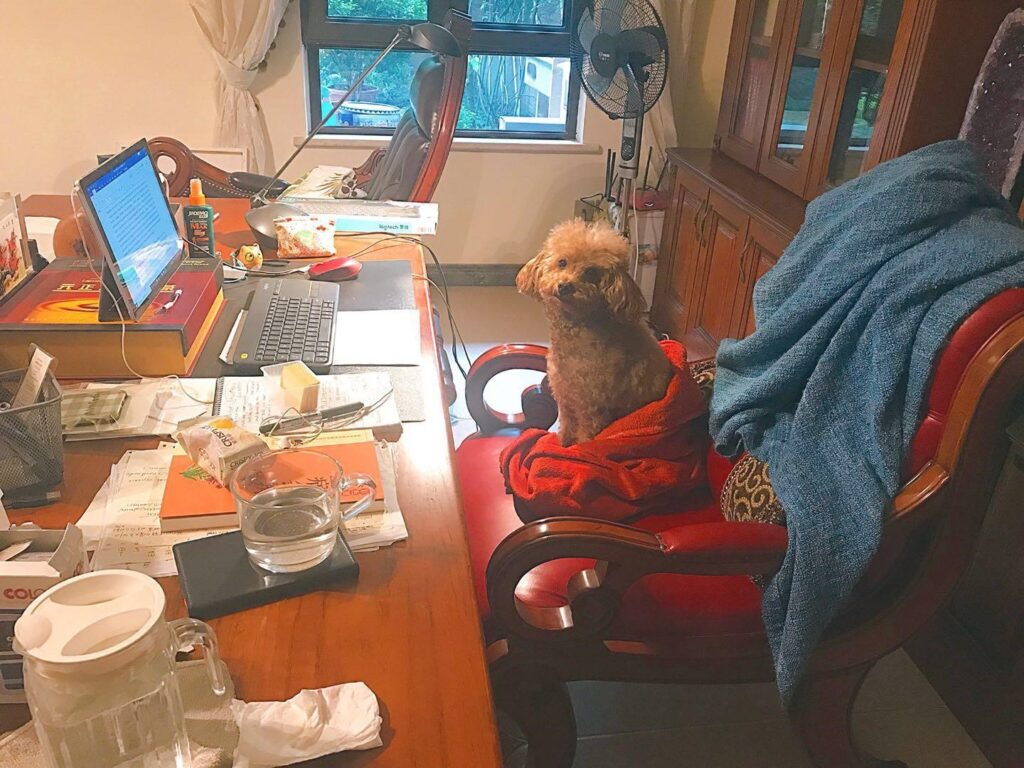
2020 is deemed to be a difficult year for numerous people. The unexpected outbreak of COVID-19 has disturbed almost all industries around the world, including education. As one of the practitioners in this area, my life and work have been influenced by this chaos significantly.
During mid-January 2020, which was also during the traditional Chinese Spring Festival and before the overwhelming propaganda of the prevalence, I asked for
several days’ annual leave and went to Hainan province to celebrate. This was meant to be a propitious moment with my parents. I had planned to stay there for approximately one and a half weeks and then go back to school and start my work, but everything turned out to be disturbed by the epidemic. The school postponed the starting of the new semester by 3 weeks as it was prohibited to open and operate according to the strict government order and tentative regulations. For me, I had to stay on the island as at first no ferry or flight was allowed to enter or leave Hainan. As I did not bring a laptop with me, I could do nothing but watch the news on TV. Two weeks later, our family set out from Hainan for Chengdu, and after 3 strenuous and heart-thumping days of driving, we finally arrived back home.
As peoples’ movements during February and March were highly controlled, I worked by distance from home after consulting with my school one day after arrival. I could still remember the disorder of the working arrangement since no one had such experience of working on-line in the school. At the initial stage, restricted by the unfamiliarity with the on-line teaching software and applications, unstable internet connection and poor interpersonal liaison, teachers and students suffered a lot. Additionally, a large group of courses taught in our school had to be canceled temporarily because most of them are oral courses and practices, requiring face-to-face interaction and teachers’ intense correction and instruction. Based on that, my teaching hours shrunk by a large extent. However, my workload was not reduced as I changed my task focus from teaching to curriculum development and correcting students’ writing assignments for courses that did not require frequent communication with students. However, unexpectedly, as I did not need to commute between home and school, I was able to spend more time in the early morning on physical workout. During that period of time, I would have a fast walk at home for 40 to 50 minutes and did some muscle training afterwards, which actually helped me keep fit and a relatively energetic state.
Unlike other people who thought this chaos destroyed every aspect of their life and work, I viewed it from another direction. Before the outbreak, I could hardly spare my time and energy to consider what was lacking in my courses, or how I could make an improvement on my teaching practices and whether the way I communicated with my students was appropriate and effective. The pace of my work and life slowed down by this disaster and it left me enough time and space to consider what is supposed to be important but neglected by us, including a closer relationship and more active connection and interaction with my family members and friends, which I regarded as a precious mental and spiritual rehabilitation process.

In September 2020, I officially started my academic journey as a doctoral student in UPEI. Because of the influence of COVID-19, students who stay overseas are allowed to stay where they are and start their study on-line for the first semester. So far, I have started two courses and am trying to catch up with the instructors’ tempo and teaching style and get used to the course delivery, time arrangement, assignment accomplishment and many other aspects of studying. To be honest, it has always been challenging, or even torturous when I started my study in the university based on my previous experiences in Sweden and Australia. I know it will take me some time, longer than other students to settle into the new academic context, not to mention the pressure of it and the additional time overcoming the obstacles and unpredictable situations caused by online learning. One of the largest difficulties among all shall be the restrictions posed on the access to various working and teaching software and applications (e.g. zoom, gmail and google drive etc.) in mainland China. In practice, such restrictions do slow down my adaptation to the routine study and I have to take more time to ensure the VPN and other technical supports could work well. But fortunately, such problems are or to be solved step by step because of my repetitive trial, the understanding and support shared by the university, instructors and schoolmates, as well as the care provided by my parents.
